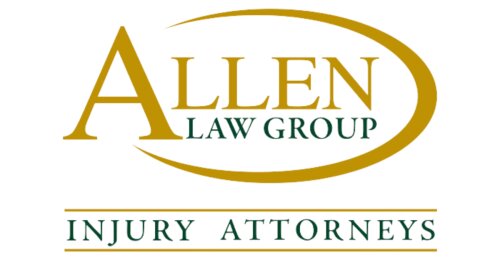Best Antitrust Litigation Lawyers in Chicago
Share your needs with us, get contacted by law firms.
Free. Takes 2 min.
List of the best lawyers in Chicago, United States
About Antitrust Litigation Law in Chicago, United States
Antitrust litigation law deals with legal disputes arising from alleged violations of competition laws, which are designed to promote fair competition and prevent monopolistic practices in the marketplace. In Chicago, as in the rest of the United States, antitrust laws aim to protect consumers and other businesses from unfair business practices such as price fixing, market allocation, bid rigging, and abuse of dominant market positions. Both federal and Illinois state laws apply to antitrust matters in Chicago. Typical antitrust cases may involve lawsuits brought by individuals, businesses, or government agencies against companies accused of violating these laws.
Why You May Need a Lawyer
There are several situations in which you might require the services of an antitrust litigation lawyer in Chicago. Common scenarios include:
- You are a business facing an investigation or lawsuit alleging anticompetitive behavior.
- Your company believes it has been harmed by unfair competition, such as price fixing or market manipulation, and wants to pursue legal action.
- You need guidance on complying with antitrust laws in mergers or acquisitions to avoid regulatory issues.
- You have received a subpoena or notice from a government agency regarding an antitrust inquiry.
- You are a consumer or smaller competitor affected by practices that seem to restrain trade or reduce competition.
An experienced lawyer can help you understand your rights and responsibilities, represent you in court, and negotiate with regulatory authorities or other parties involved in the dispute.
Local Laws Overview
Antitrust litigation in Chicago operates under a combination of federal and state laws. The primary federal statutes include the Sherman Antitrust Act, the Clayton Act, and the Federal Trade Commission Act. These laws address unlawful restraints of trade, monopolization, and unfair competition. Illinois state law also includes provisions such as the Illinois Antitrust Act, which closely mirrors federal statutes but can provide additional remedies and enforcement avenues within the state.
Local enforcement of antitrust laws in Chicago may involve agencies such as the United States Department of Justice's Antitrust Division, the Federal Trade Commission, and the Illinois Attorney General's Office. Courts located in Chicago, including the United States District Court for the Northern District of Illinois and the Illinois Circuit Court of Cook County, frequently handle complex antitrust litigation matters affecting businesses both local and national.
Frequently Asked Questions
What is antitrust litigation?
Antitrust litigation refers to legal proceedings that resolve disputes involving alleged violations of laws designed to promote competition and prevent monopolies or unfair business practices. These can be civil or criminal cases brought by private parties, competitors, or government agencies.
Can a small business file an antitrust lawsuit in Chicago?
Yes, small businesses harmed by anticompetitive practices can bring lawsuits against larger competitors or others who violate antitrust laws, seeking damages or injunctions to stop illegal activities.
Who enforces antitrust laws in Chicago?
At the federal level, the Department of Justice's Antitrust Division and the Federal Trade Commission enforce antitrust laws. Illinois state agencies, including the Attorney General's Office, also enforce state antitrust statutes.
What types of conduct can violate antitrust laws?
Violations may include price fixing, bid rigging, market division, exclusive dealing agreements, monopolization, and mergers that substantially lessen competition.
Are antitrust laws enforced only against large corporations?
No, antitrust laws apply to businesses of any size engaging in unlawful anticompetitive conduct.
How long does an antitrust lawsuit typically take?
Antitrust lawsuits can be complex and lengthy, sometimes lasting several years from initiation to resolution, depending on the specifics of the case and court schedules.
What remedies are available in antitrust litigation?
Remedies may include monetary damages, injunctive relief (court orders to cease certain conduct), and, in some criminal cases, fines or imprisonment for individuals.
Do I need a lawyer to respond to an antitrust investigation?
Yes, it is highly advisable to consult with an experienced antitrust lawyer if you or your business is being investigated, as these matters can involve significant legal and financial consequences.
Is it possible to settle an antitrust case out of court?
Yes, many antitrust disputes are resolved through settlements before reaching trial, often involving agreements to change certain business practices or pay damages.
What is the role of the Illinois Antitrust Act?
The Illinois Antitrust Act reinforces federal antitrust laws within the state and allows for enforcement actions by the Illinois Attorney General or private parties harmed by violations, providing additional protections against anticompetitive conduct in Illinois.
Additional Resources
Those seeking more information or assistance with antitrust issues in Chicago can consult the following resources:
- United States Department of Justice Antitrust Division
- Federal Trade Commission (FTC)
- Illinois Attorney General - Antitrust Bureau
- Chicago Bar Association
- American Bar Association Section of Antitrust Law
- Northwestern Pritzker School of Law Antitrust and Competition Law Program
These organizations provide valuable information, publications, and sometimes referral services for those facing antitrust legal issues.
Next Steps
If you believe you have an antitrust concern in Chicago, begin by documenting all relevant facts, communications, and business practices. Avoid taking actions that could jeopardize your legal position. Consulting with a skilled antitrust litigation attorney is crucial to protecting your rights and determining the best course of action. Attorneys can help assess the merits of your case, advise on compliance, represent you in negotiations or court, and ensure all procedural requirements are met.
To get started, consider reaching out to a lawyer who specializes in antitrust and competition law, or contact one of the organizations listed in the resources section for referrals or further information. Acting promptly will help safeguard your interests and enhance your chances of a favorable outcome.
Lawzana helps you find the best lawyers and law firms in Chicago through a curated and pre-screened list of qualified legal professionals. Our platform offers rankings and detailed profiles of attorneys and law firms, allowing you to compare based on practice areas, including Antitrust Litigation, experience, and client feedback.
Each profile includes a description of the firm's areas of practice, client reviews, team members and partners, year of establishment, spoken languages, office locations, contact information, social media presence, and any published articles or resources. Most firms on our platform speak English and are experienced in both local and international legal matters.
Get a quote from top-rated law firms in Chicago, United States — quickly, securely, and without unnecessary hassle.
Disclaimer:
The information provided on this page is for general informational purposes only and does not constitute legal advice. While we strive to ensure the accuracy and relevance of the content, legal information may change over time, and interpretations of the law can vary. You should always consult with a qualified legal professional for advice specific to your situation.
We disclaim all liability for actions taken or not taken based on the content of this page. If you believe any information is incorrect or outdated, please contact us, and we will review and update it where appropriate.

















